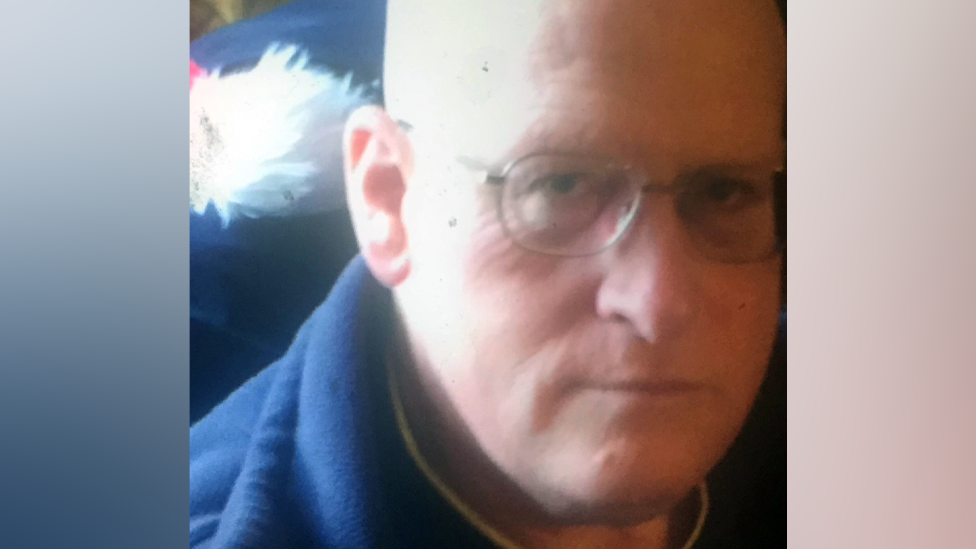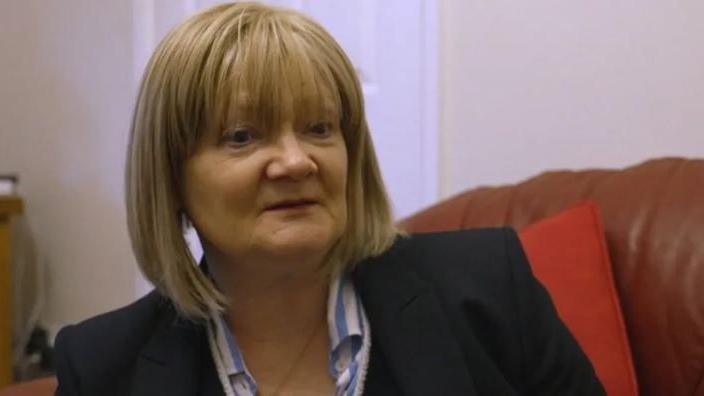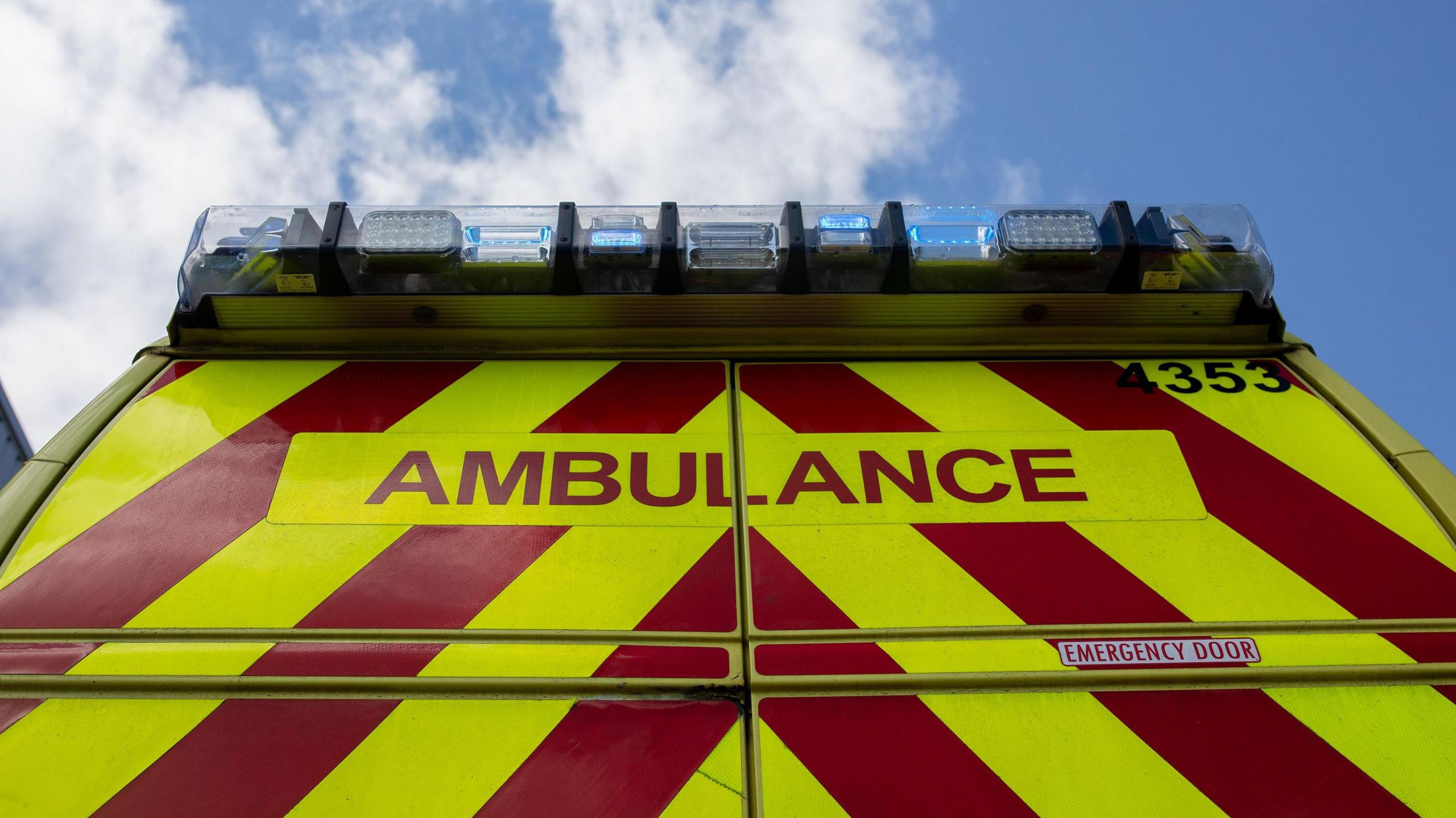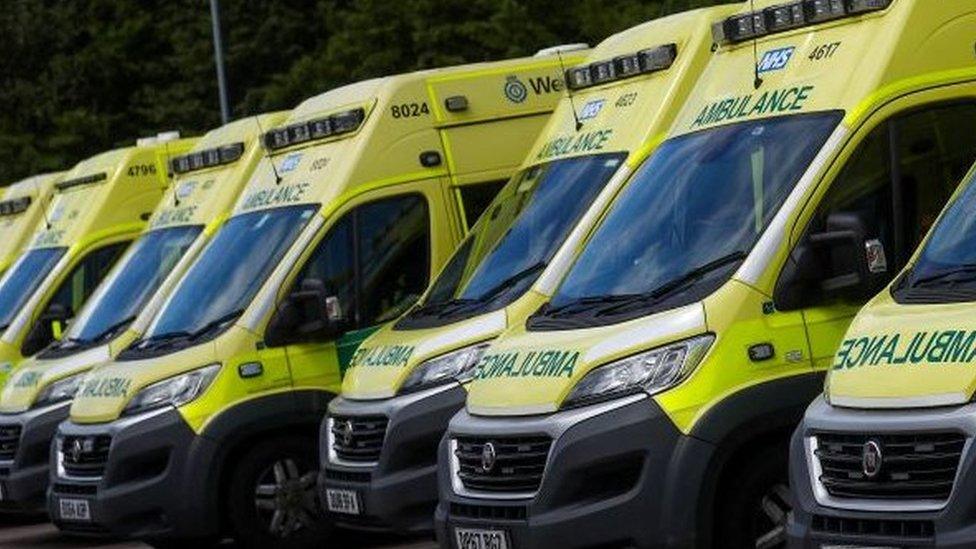Call for ambulance probe after deaths

John Beardmore's niece was unable to get the code to open a defibrillator box after he went into cardiac arrest
- Published
Councillors have demanded an investigation after claiming rural areas are not getting a good enough ambulance service.
West Midlands Ambulance Service came under scrutiny following two deaths where 999 callers had problems obtaining defibrillator access codes.
Staffordshire Moorlands District Council this week voted unanimously to call for a probe over what it described as a disparity in coverage.
The service said it shared concerns about the length of time it took medics to get to patients.
Labour leader of the council Mike Gledhil described it as a serious issue.
"We don’t feel that the West Midlands Ambulance Service is responsive to the situation and needs of the Moorlands," he said.

Julie Downie previously spoke to the BBC
John Beardmore's family dialled 999 when the 73-year-old started having breathing problems in October 2022.
His niece Julie Downie ran to the village hall to get the defibrillator but neither the ambulance call handler or her supervisor could find the code needed to open the box.
The ambulance arrived two hours and 13 minutes after the first call was made, by which time it was too late.

The ambulance service trust serves a population of 5.6 million people
West Midlands Ambulance Service University NHS Foundation Trust said there was a correlation between ambulances being stuck at hospital accident and emergency departments and ambulance waiting times.
"If they are stuck at A&E ... crews often have to respond from the hospital leading to extended response times," a spokesperson said.
The trust serves a population of 5.6 million people and covers an area of more than 5,000 square miles, made up of Shropshire, Herefordshire, Worcestershire, Staffordshire, Warwickshire, Coventry, Birmingham and the Black Country.
Bosses added that research in Shropshire showed providing the same response times in rural areas as urban ones would require them to double staff members and increase fleet numbers by two thirds.
The spokesperson added: “We will continue to work with our partners in health and social care to identify additional measures that can reduce hospital handover delays so that our ambulances can get to patients in the community much more quickly."
This news was gathered by the Local Democracy Reporting Service which covers councils and other public service organisations.
Follow BBC West Midlands on Facebook, external, X,, external and Instagram, external, Send your story ideas to: newsonline.westmidlands@bbc.co.uk, external
- Published19 February 2024
